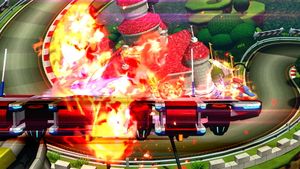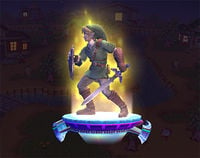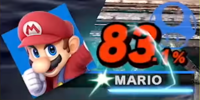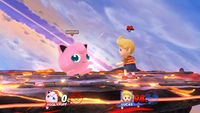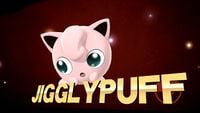Final Smash: Difference between revisions
(Future-proofing.) |
(Undid edit by ShootingStar7X: I already told you, we don't do this.) Tag: Undo |
||
| Line 2: | Line 2: | ||
{{cquote|The basic gist of it? I suppose you could say it’s kind of like a powerful and personalized [[hammer]]. (Or maybe not...)|cite=[[Masahiro Sakurai]], [http://www.smashbros.com/wii/en_us/howto/basic/basic02.html Smash Bros. DOJO!!]}} | {{cquote|The basic gist of it? I suppose you could say it’s kind of like a powerful and personalized [[hammer]]. (Or maybe not...)|cite=[[Masahiro Sakurai]], [http://www.smashbros.com/wii/en_us/howto/basic/basic02.html Smash Bros. DOJO!!]}} | ||
[[File:Mario Finale SSB4 WiiU.jpeg|thumb|300px|[[Mario Finale]], [[Mario]]'s Final Smash.]] | [[File:Mario Finale SSB4 WiiU.jpeg|thumb|300px|[[Mario Finale]], [[Mario]]'s Final Smash.]] | ||
A '''Final Smash''' ({{ja|最後の切りふだ|Saigo no Kirifuda}}, ''Last Trump Card'') is a type of last resort attack | A '''Final Smash''' ({{ja|最後の切りふだ|Saigo no Kirifuda}}, ''Last Trump Card'') is a type of last resort attack in ''[[Super Smash Bros. Brawl]]'', ''[[Super Smash Bros. 4]]'' and ''[[Super Smash Bros. Ultimate]]'', and a fighter's equivalent to a super move in other fighting games. | ||
==Overview== | ==Overview== | ||
Revision as of 08:46, April 14, 2022
| “ | The basic gist of it? I suppose you could say it’s kind of like a powerful and personalized hammer. (Or maybe not...) | ” |
| —Masahiro Sakurai, Smash Bros. DOJO!! | ||
A Final Smash (最後の切りふだ, Last Trump Card) is a type of last resort attack in Super Smash Bros. Brawl, Super Smash Bros. 4 and Super Smash Bros. Ultimate, and a fighter's equivalent to a super move in other fighting games.
Overview
Final Smashes tend to be incredibly powerful attacks, often leaving the user invincible for the move's duration (the periods vary from character to character, but always apply upon startup/execution), and are generally unblockable. If properly executed, they usually have the capacity to KO at least one opponent. Final Smashes performed correctly will give the player a great advantage, and may help to catch up to others or cement a commanding lead. Many Final Smashes also temporarily slow down stage elements, such as platform movements and motions in the background. However, in many cases, stage hazards' hitboxes remain active while a non-cutscene Final Smash is in effect, making them exploitable for gaining additional damage.[1]
To perform a Final Smash, a player must first either destroy a Smash Ball, fill the Final Smash Meter in Super Smash Bros. Ultimate (although then the Final Smash will be weaker), be given the ability by Victini or fall sufficiently far behind in a match that they are given a "Pity Final Smash" upon respawning. Once any of these happen, the screen will darken, the player's character will be engulfed in a multi-colored aura and their eyes will glow a bright yellow; in this state, the character's neutral special move is effectively replaced with a single use of their Final Smash.
In Brawl, the majority of Final Smashes are powerful enough that they have the potential to KO incredibly early or even one-hit KO if used properly. In SSB4, Final Smashes were universally made much weaker, many of them no longer being able to KO opponents at low percentages. In Ultimate, they have been slightly nerfed overall once again. If a player doesn't use their Final Smash in about 20 seconds, the effect will expire. Final Smashes have also been tweaked to be less disruptive to the gameplay.
Bayonetta's Infernal Climax in SSB4 became the first Final Smash with the potential to instantly KO trapped opponents. In Ultimate, several Final Smashes have this property.
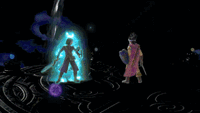
Most Final Smashes cause the camera to temporarily zoom in on the user when activated, though there are some situations where this does not occur, such as with Pac-Man's Final Smash, Super Pac-Man. In Super Smash Bros. for Wii U, through a currently unconfirmed nature, there are some cases where Final Smashes that normally zoom in don't zoom in at all. In Ultimate, there are two types of zooms: activating after breaking the Smash Ball will have a closeup on the user from a different angle, and activating from a Final Smash Meter will have a standard zoom similar to Brawl and SSB4.
Only one Smash Ball or Final Smash can be present onscreen at any given time. When most Final Smashes are performed in the air, upon ending the move, the character gains a slight boost in height and regains their spent midair jumps, usually preventing a self-destruct.
Final Smashes are affected by Rage and Stale-Move Negation (and therefore will usually gain a freshness bonus), but are not affected by stat changes from equipment or Mii Fighter sizes.
Prior to Brawl
Masahiro Sakurai revealed in an interview with former Nintendo president Satoru Iwata that he intended to include Final Smashes in the original Super Smash Bros., even going as far as to record voice clips for each of them.[2] However, the Nintendo 64’s console limitations could’ve been the reason why they were scrapped and the idea wouldn’t be implemented until Brawl. Some of these voice clips, which were contained in the Super Smash Bros. debug menu, were eventually and correspondingly used in Brawl.
Pity Final Smash
A Pity Final Smash (Easy Final Smash in SSB4 and Ultimate) randomly occurs when any player is KO'd and is 5 points behind the current leader. Also, in SSB4, at least 6 KOs between all players must be landed for any player to acquire one. This player respawns with the ability to perform a Final Smash. This Final Smash cannot be dropped by the player.
In a 2-player timed match in Brawl, since the points differ by two for each kill, it is possible to go from a lead of 4 points to 6 without triggering the Pity Final Smash condition (which is to be exactly 5 points behind). If a player SD's, and consequently loses only one point, then a Pity Final Smash is possible.
Pity/Easy Final Smashes cannot occur while a Smash Ball is present on the battlefield, even when the requirements are met. In Brawl, Pity Final Smashes can be disabled only by turning the Smash Ball off; simply setting the overall item frequency to "None" does not prevent players from getting them if Smash Balls are still turned on. In SSB4, either method will prevent Easy Final Smashes. Additionally, they cannot occur in 2 player matches, for AI players, or by a player SD'ing.
Changes in Ultimate
Sakurai stated in a Nintendo Direct that every Final Smash would be standardized to be simple and straight to the point. As a result, Final Smashes were made universally faster in Super Smash Bros. Ultimate, removing most player-controlled ones; the KO potential of Final Smashes has also been reduced. Because of the universal speed increase and control removal applied to Final Smashes, many Final Smashes such as Bowser's Giga Bowser, Wario's Wario-Man, and Little Mac's Giga Mac had their functionality changed significantly (they no longer use their full moveset transformation Final Smash; it is instead a single hit that quickly returns to regular gameplay). Others such as Fox and Falco's Landmaster and Donkey Kong's Konga Beat, have been completely replaced. The Final Smash Meter (FS Meter) is also introduced, which is a toggle feature in the rules that allows players to gain a weaker form of their Final Smash by filling up their gauge during battle. However, while multiple meters can be full at once, only one Final Smash can be performed at a time. In addition, when Victini appears, it will give the fighter who summoned it access to their Final Smash without filling up their meter.
During a Final Smash, the camera controls are disabled. Additionally, a close-up of the fighter's eyes will briefly appear upon activating the Final Smash (except for Mii Fighters), and the stage background will change to a solid-colored pattern while the Final Smash is in effect.
List
Notes
- ^ https://www.youtube.com/watch?v=MRJOu-_qAH8
- ^ https://iwataasks.nintendo.com/interviews/#/wii/ssbb/4/0
- ^ a b c These Final Smashes leave the character vulnerable (either entirely or just to damage) during their Final Smash.
- ^ a b c d e f Prior to Ultimate, these Final Smashes never zoomed in on the user of the Final Smash. In the case of Shulk, the camera did move, but it did not necessarily zoom in on him.
- ^ Omnislash Ver. 5 was added in Version 10.1.0 to Cloud's Advent Children costumes. Functions identically to Omnislash.
- ^ a b c Different name, but still have similar functions from the previous game.
- ^ a b The move that is used depends on the range at which the Final Smash is activated.
- ^ a b This Final Smash's function was heavily modified in the transition from Brawl to Smash 4, then reverted back to resemble its original incarnation in Ultimate. However, its title has remained the same across all three titles.
- ^ a b These Final Smashes leave the character vulnerable during part of their Final Smash.
- ^ a b c d e These Final Smashes function in a completely different fashion in Ultimate than they did in previous titles, but are considered to be the same move due to retaining similar aesthetic details and keeping the same name. In the case of Volt Tackle, Pichu gains it as a new move due to last appearing in Melee (in which Final Smashes did not exist), while Pikachu keeps the move from its post-Melee appearances but has had its function dramatically changed.
- ^ Known as “Housewarming Party” in PAL regions.
- ^ While this move is called “Stampede!” on the Move List, it is known as “Yoshi Stampede” in the tips.
In competitive play
In tournaments, all items, including Smash Balls, are turned to "none" and "off," respectively, meaning that Final Smashes do not appear in tournaments. While there has been some dispute in the past whether Smash Balls solely of all items should be allowed, due to Final Smashes resembling the "super move" concept of more traditional fighting games, the general consensus is that they are detrimental to competitive play for several reasons:
- Final Smashes behave very differently from the typical "super moves" of other fighting games: they are not built up through any controllable means while a match plays out (such as dealing or taking damage) and are instead acquired through breaking a completely separate and randomly spawning "super move item" that flies around the stage in an unpredictable pattern. Such properties can lead to a player gaining a large advantage from just being in the right place at the right time.
- Only one player is allowed to be on standby at any given time, thus precluding any potential immediate counters with Final Smashes and forcing the opponent to wait for the next Smash Ball to spawn.
- The frequent appearance of Smash Balls, which is not affected by what the item frequency is set to, heavily centralizes the match on "getting the Smash Ball" rather than outplaying the opponent.
- Characters with high mobility and range are better at pursuing and obtaining the Smash Ball than others; it is unlikely, for instance, that a Little Mac player fighting a Jigglypuff player on an Ω form stage can break the Smash Ball before their opponent gets to it unless it happens to spawn or float close to the ground.
- When a character has a Final Smash, they can randomly drop it from any hit that deals hitstun, introducing yet another significant random element to them.
- In SSB4, spawn times for Smash Balls can vary wildly, ranging from a few seconds to a few minutes, further increasing their randomness.
- In Ultimate, Smash Balls can spawn with the physics of a Soccer Ball. While this slightly counters the random flight, the fact that it does not always occur and the item can still spawn anywhere on the map only increases the luck factor.
- Most Final Smashes are considered to have disproportionate power; simply using one competently will result in massive damage if not a clean KO of the opponent, easily accomplishing what could take far more effort for the opponent to match. In addition to this, not all Final Smashes are guaranteed to be reliable at KOing opponents, as some operate as a stage-wide nuisance and have more difficulty KOing opponents. This is most prominent in Brawl; some polarized examples include:
- Sonic's Final Smash deals very high damage and knockback, and his immense movement speed makes it virtually impossible to avoid for long, while its long duration also makes it possible for Sonic to KO the same opponent twice in a single Final Smash usage. Falco's Landmaster is similar in being a virtually impossible to avoid Final Smash that lasts long enough to KO the same opponent twice, and can additionally fly opponents off the top blastzone to KO them at 0%.
- Zero Suit Samus's Final Smash is very ineffective due to its small area-of-effect and low power, and it forces her to turn into the less viable Samus when the Final Smash finishes, which the player will also not be able to reverse unless they acquire another Smash Ball or a difficult Smash Taunt that will leave them vulnerable.
- Peach's Final Smash doesn't KO opponents at all, it instead puts nearby opponents to sleep and spawns numerous healing items, and it additionally has no effect on airborne opponents, making it very easy to avoid its effect.
- In Brawl, the loading time required before a Final Smash actually becomes available to a character is somewhat random and invisible to players, so one may end up using a neutral special for no apparent reason and possibly providing the opponent a free opportunity to counter.
Because items are turned to off and none and tournament rules generally specify lower stock than what is required to trigger them, Pity Final Smashes also do not appear in tournaments. The common argument for including them is that, as Pity Final Smashes do not appear at random, one can reap the benefits of a Final Smash without relying on luck, allowing players in a heavy losing position to stage an easy yet effective comeback. However, this can only happen in a match of at least 6 stocks, which is considered to be far too high for tournaments as it drastically increases playtime, and competitive players generally consider an element designed solely to aid a worse-performing player to be anti-competitive. In SSB4, as they cannot occur in a 1v1 setting, in which most competitive matches take place, it can be said that Smash Balls must be disabled solely due to Easy Smashes having the capacity to occur in a doubles match but not a singles match.
Super Smash Bros. Ultimate seems to address a number of these issues:
- The Final Smash Meter eliminates the need for luck to obtain Final Smashes, and Final Smashes earned by the FS Meter are weaker than those obtained from a Smash Ball.
- This brings them more in line with other controllable one-use, high-risk attacks such as Wario Waft, KO Uppercut, and Limit Breaks.
- With this mechanic, players in a 1v1 match can once again obtain a Final Smash without turning on the Smash Ball or having to break one. In addition, it is no longer necessary to set the stock count high and worry about Easy Final Smashes.
- While only one player can use a Final Smash at a time, any number of players can be on standby at once assuming their FS Meter is full.
- As of the 4.0.0 update, the Final Smash Meter now has a time limit of 20 seconds, which means the player cannot remain on standby for as long as they want to.
- Controllable transformation Final Smashes have been removed entirely, reducing the gap in effectiveness between Final Smashes.
Despite all the aforementioned restrictions set within Ultimate's configurations, Final Smashes continue to be plagued by many of the same complications that were of concern in the past:
- The gap in ineffectiveness has been reduced, but is still quite large: Octopus and Puff Up are considered to be overpowered and underpowered respectively.
- Even with the nerf in power, Final Smashes obtained by FS meter are still too powerful, typically KOing around 50% or less.
- While the FS meter allows them to be charged up and thus predictably obtained, the meter charging from taking damage and passively overtime eliminates the possibility of counterplay via preventing the opponent from obtaining their Final Smash. The fact that Final Smashes makes the user fully intangible, are unblockable, and generally have massive hitboxes, makes them disproportionately powerful compared to other "super attacks".
- This is especially problematic with large-scale Final Smashes like Peach Blossom and Triforce of Wisdom, which are practically unavoidable on tournament legal stages due to their massive area of effect.
- This also makes Final Smashes that can be activated instantly and be effective without any setup like the aforementioned two and Infernal Climax have virtually no counterplay, as the opponent cannot be prevented from getting their Final Smash, and the player can do nothing to avoid getting KO'd by the Final Smashes.
- Once a player fills their FS Meter, they can only lose their Final Smash by being KO'd or 20 seconds passing without using it, which while this eliminates the randomness with any hit being able to randomly make a player drop their Final Smash when it's obtained via Smash Ball, it farther limits counterplay against all Final Smashes.
- The FS meter charges much more quickly by taking damage and can only be depleted on the use or by being KO'd during standby, which primarily assists the worse-performing player in a similar fashion to Easy Final Smashes. Furthermore, players who are at a stock disadvantage lose less meter than those who are in the lead.
As such, Final Smashes of any form remain universally banned in competitive play.
Glitches
Eyeball glitch
In SSB4, a glitch can occur affecting the eyeballs of multiple characters, most notably Jigglypuff, as a result of an oversight in the coding of the graphical effects of characters eyeballs during Final Smashes. When breaking the Smash Ball with a move that causes a character's eyeballs to point in a certain direction, upon finishing their Final Smash, said fighter's eyeballs will be locked in this same position until a move or action is performed that also causes the fighter to look in a direction. This occurs because a fighter's eyeballs are temporarily replaced with yellow eyeballs when they break a Smash Ball, at which point their regular eyeballs are stored exactly as they were just before their eyeball model was replaced. In some extreme cases, this glitch can even be carried over into victory animations, such as one of Jigglypuff's victory animations.
Undead glitch
There was a glitch that existed in Brawl and SSB4 that allowed Giga Bowser, Wario-Man, Giga Mac, Mega Charizard X, or Mega Lucario to survive after being defeated in Stamina Mode. When this occurs, if the transformed character's HP is depleted, their stamina gets reduced to 0 HP (zero hit points) and their transformations are undone. Then they are able to continue to fight; despite having "0 HP" displayed.
Super Smash Bros. for Wii U digital manual description
"Break a Smash Ball and then press ![]() to unleash your character's unique Final Smash."
to unleash your character's unique Final Smash."
Trivia
- Many Final Smash trophies credit their origin solely to Brawl in that game, or no credit at all is given in for Wii U, despite many Final Smashes (e.g. Light Arrow, Giga Mac, Wario-Man, Landmaster) being based on abilities from a character's respective series.
- In fact, the only one not to do so is Super Sonic, which lists Sonic the Hedgehog 2 (the game in which the transformation debuted in the Sonic the Hedgehog series) as its other game in Brawl, though it (like the rest of the Final Smash trophies) gives no game of origin in for Wii U.
- There are five Final Smashes that can affect a team player: End of Day, Landmaster, Puff Up, Iceberg, and Galaxia Darkness (in Brawl only).
- When a character uses their Final Smash, their equipment is temporarily disabled. This is noticeable with Auto Heal and a high attack stat.
- If Rosalina is KO'd before her Final Smash wears off, her equipment will start working again.
- While Bowser, Little Mac, and Wario use mirrored versions of their regular special moves as opposed to any custom versions after transforming via their Final Smash, Lucario is still able to use its custom special moves, further enhanced by the boosted Aura.
- Ryu and Ken are the only fighters with two distinct Final Smashes in a single installment. Cloud also received a new Final Smash for his Advent Children costumes in version 10.1.0 in Ultimate, but it is merely an aesthetic change to his default one.
- The input Hadoken, Shakunetsu Hadoken, and Oosoto Mawashi Geri can still be performed while in Final Smash standby mode, making Ryu and Ken (and Kirby with either's Copy Ability) the only fighters who can use a neutral special move in standby after breaking the Smash Ball, barring glitches and disc load delay.
- Mega Charizard X and Mega Lucario are the only Final Smashes that grant super armor as well as a reduction in damage sustained while transformed.
- When any Final Smash is used, if the user is completely off-screen (when the user is taking magnifying glass damage), there will be no start-up lag or animation; the attack starts up immediately. Cool down time is still normal.
- Mario, Captain Falcon, and Jigglypuff are the only three characters in the Original 12 to have kept their Final Smashes the same from Brawl in both Smash 4 and Ultimate without any functionality changes.
- Out of these three characters, Mario is the only character (in the Original 8) who had his Final Smash kept the same without any functionality changes (prior to Ultimate).
- Pit, Zero Suit Samus, R.O.B., and King Dedede are the only characters who have appeared to have a different Final Smash across every installment since Final Smashes were introduced.
- Palutena and Chrom are the only characters that originally appeared as part of a fighter's Final Smash in older installments, being Pit's Palutena's Army and Robin's Pair Up, respectively, before becoming a fighter themselves in a later one. In Palutena's case, Pit's Final Smash was changed and did not include her, whereas, in Chrom's case, Robin's Final Smash was not changed and still includes Chrom. This means that original-colored Chrom can attack himself through Robin's Final Smash. Both coincidentally became playable in the game following their Final Smash cameo.
- Chrom, Dark Pit, and Ken are the only Echo Fighters to have a different Final Smash from their base fighter.
- Charizard and Lucario are the only characters to have gained a new Final Smash in a future iteration of a game, only to revert back to the original Final Smash in the next. In Charizard's case, it gained Mega Charizard X in Smash 4, only to revert back to Triple Finish in Ultimate (as a consequence of being grouped back into the Pokémon Trainer's party). Lucario had Mega Lucario in Smash 4, only to revert back to Aura Storm in Ultimate (also in Ultimate, it is due to the design changes of how Final Smashes work in said game). However, unlike Charizard, Lucario keeps elements of its Smash 4 Final Smash, as it still transforms into Mega Lucario while using its Final Smash.
- Joker's Final Smash, All-Out Attack, is the only Final Smash that can cut directly to the results screen.
- In Ultimate, seven Final Smashes remove the damage percentage, either due to the presence of text boxes or pre-rendered cutscenes, these being All-Out Attack, Triple Finish, Team Star Fox, Team Star Wolf, Gigaslash, House of Boom, and Supernova.
- Of these, All-Out Attack, Gigaslash, House of Boom, and Supernova are the only Final Smashes to remove it for the entire duration of the move.
- In Ultimate, when a character uses their Final Smash and another character is in the frame during the initial shot, the other character will have a shocked expression on their face.
- In Spirit Battles, after a puppet fighter with a permanent gold condition uses a Final Smash, they will return to normal before having the golden effect reapplied to them, playing the power-up sound and creating glowing particles just like when a fighter turns to gold when they collect 100 coins in Golden Plains or summon Xerneas from a Poké Ball.
- Stampede! (in Ultimate) is the only Final Smash whose reference was from an opening movie, that being Melee.
- In Ultimate, there are noticeably many characters whose Final Smash (or new Final Smash, in the case of veterans) wasn't officially announced until the game's initial release. This includes, Young Link, Meta Knight, Diddy Kong, Lucario, R.O.B., Robin, Daisy, and Richter. While Rosalina & Luma's Final Smash was shown in their gameplay showcase video, it used the Power Star like in Smash 4, instead of the Grand Star from the final build.
- In Ultimate, a handful of Final Smashes use pre-rendered cinematics for certain elements—specifically, All-Out Attack, Gigaslash, House of Boom, and Supernova. These attacks all share several aspects in common:
- They are all cutscene Final Smashes that are triggered by an attack making contact with an opponent.
- They all run at 30 frames per second, whereas the rest of the game runs at 60 frames per second.
- They all belong to DLC fighters from third-party franchises (Joker, Hero, Steve, and Sephiroth).
- The damage percentages are completely removed during these cinematics.
- If the game is played via local game and the Switch home menu is booted up, the Final Smash will still continue to play out until the end.
External links
| Attacks in the Super Smash Bros. series | |
|---|---|
| Standard ground attacks | Neutral attack · Dash attack |
| Tilt attacks | Forward tilt · Up tilt · Down tilt · Crouching attack |
| Smash attacks | Forward smash · Up smash · Down smash |
| Aerial attacks | Neutral aerial · Forward aerial · Back aerial · Up aerial · Down aerial · Grab aerial · Glide attack |
| Throws | Grab · Pummel · Forward throw · Back throw · Up throw · Down throw |
| Get-up attacks | Floor attack · Edge attack |
| Special moves | Neutral special move · Side special move · Up special move · Down special move · Command-input move · Final Smash |
